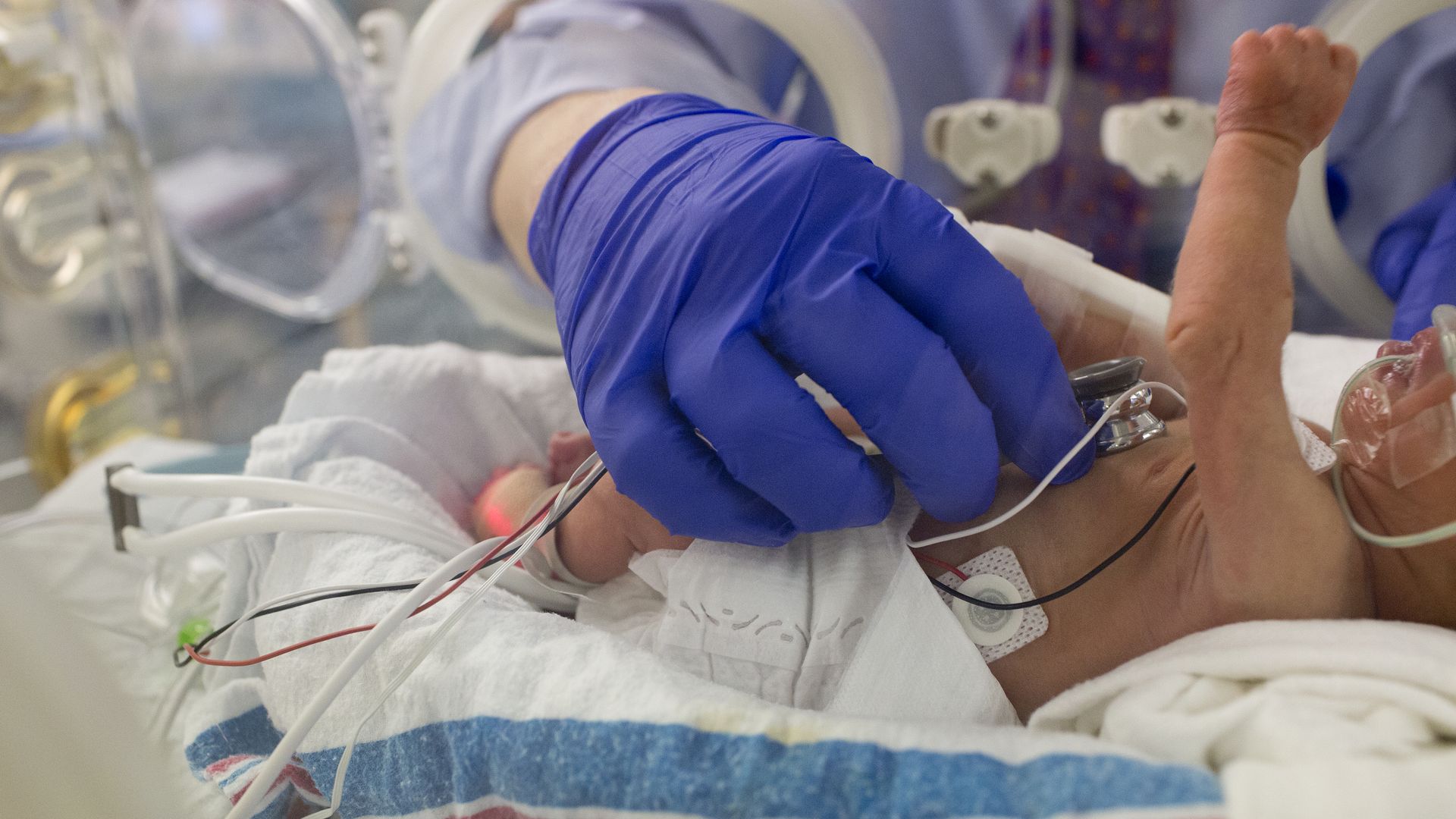Nov 16, 2021 - Health
U.S. premature births decline despite racial disparities
Add Axios as your preferred source to
see more of our stories on Google.

A doctor checks on an infant born prematurely. Photo: Andrew Lichtenstein/Corbis via Getty Images
Add Axios as your preferred source to
see more of our stories on Google.

A doctor checks on an infant born prematurely. Photo: Andrew Lichtenstein/Corbis via Getty Images